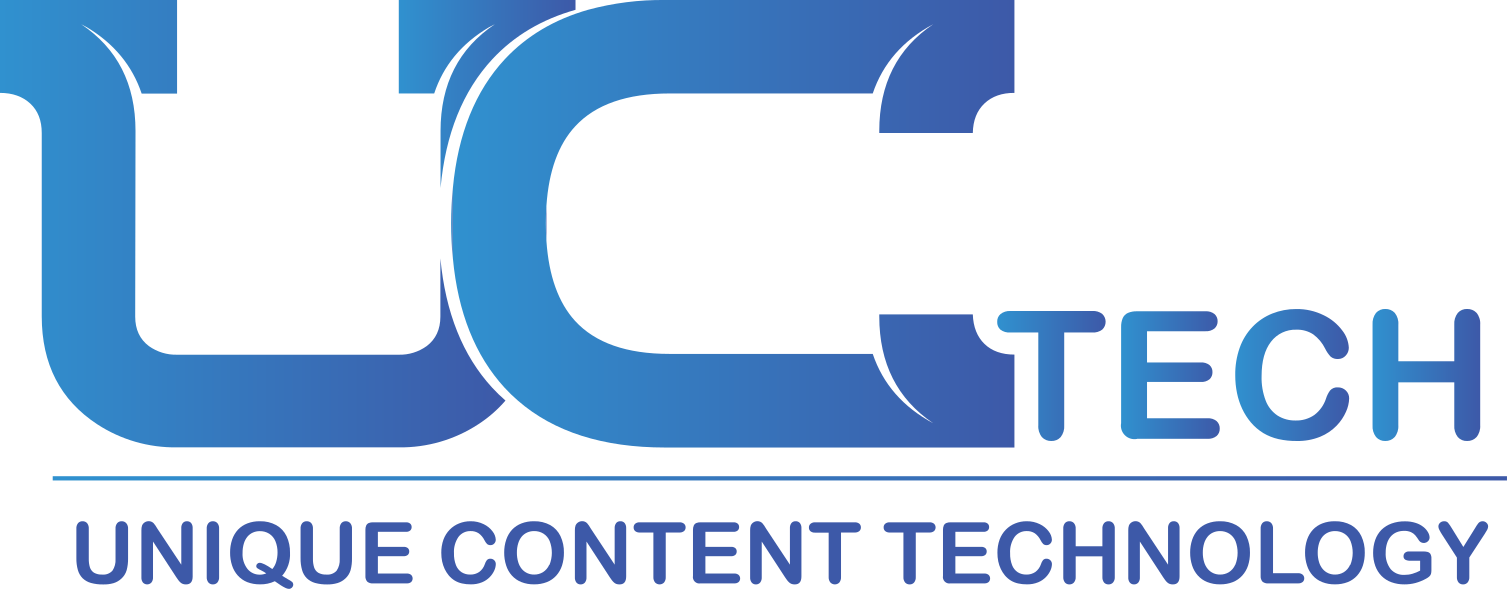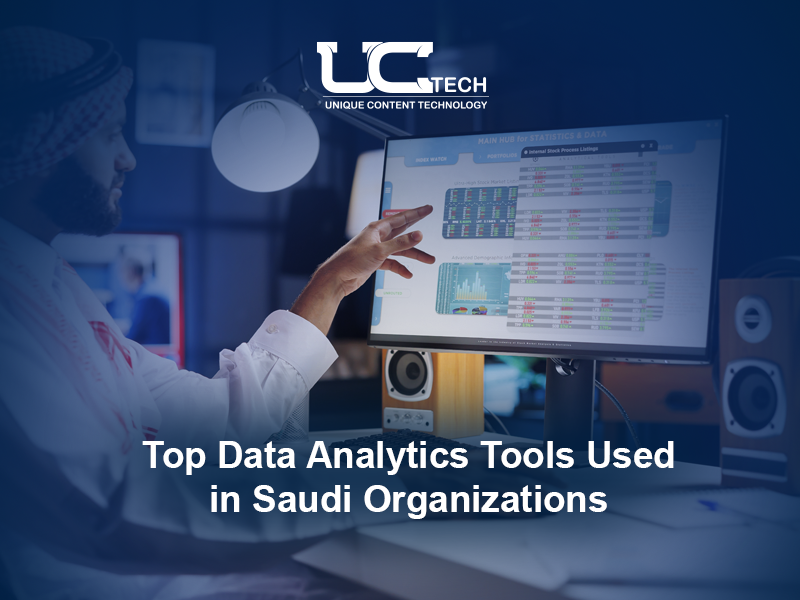Is your organization making the most of its data or just collecting it?
In the fast-evolving business landscape of Saudi Arabia, organizations are under pressure to make smarter, faster, and data-backed decisions.
From government entities driving Vision 2030 initiatives to private enterprises embracing digital transformation, the use of top data analytics tools for Saudi companies is no longer optional, it’s a strategic necessity.
Whether you’re analyzing customer trends, forecasting revenue, or optimizing supply chains, the right analytics tool can turn raw data into actionable intelligence.
But with so many platforms available, how can Saudi decision-makers know which one is right for their organization?
This article explores the most used data tools in financial and healthcare sectors, compares market leaders like Power BI vs. Tableau, and offers insights into choosing the right analytics software for your team, all tailored to the realities of the Saudi enterprise market.
Why Data Analytics Tools Are Essential for Saudi Enterprises
Saudi organizations, both public and private, are rapidly embracing enterprise data analytics services to support strategic planning, risk reduction, and service excellence. As part of AI applications in Saudi Arabia, these tools form the foundation of intelligent decision-making, supporting goals like:
- Enhancing customer experience through behavior analysis
- Forecasting market trends and performance
- Streamlining internal operations
- Supporting compliance and reporting requirements
From Riyadh to Jeddah, cloud-based analytics solutions in Saudi Arabia are playing a key role in sectors such as healthcare, retail, energy, and finance.
Top data analytics tools offer intuitive dashboards, AI-driven insights, and real-time data tracking, making them indispensable in today’s knowledge economy.
Key Differences Between Free and Premium Analytics Platforms
When selecting a tool, many businesses ask: should we start with a free version or invest in an enterprise-grade solution?
Free tools like Google Data Studio or Apache Superset can handle basic visualizations and reporting. They’re great for small teams with limited data needs.
However, premium analytics platforms like Power BI, Tableau, or Qlik deliver features such as:
- Robust data integration
- AI-enhanced predictive modeling
- Interactive dashboards for executives
- Role-based access controls
- Advanced reporting and mobile accessibility
If your business is looking to scale operations or integrate with ERP systems, premium solutions are the better fit especially when paired with AI consulting for enterprises for seamless deployment.
Power BI vs. Tableau: A Detailed Comparison for Saudi Enterprises
Two of the top data analytics tools dominating the Saudi enterprise market are Power BI and Tableau. Let’s break down their differences for business leaders:
| Feature | Power BI | Tableau |
|---|---|---|
| Ease of Use | User-friendly for beginners | Requires some training for new users |
| Integration | Seamless with Microsoft ecosystem (Azure, Excel) | Strong support for a variety of data sources |
| Pricing | Competitive; included in many Microsoft licenses | Premium pricing for enterprise features |
| Visualizations | Solid dashboards and visuals | More advanced and creative visual capabilities |
| Adoption in KSA | Widely adopted in public sector and SMBs | Popular among large enterprises and analytics-heavy firms |
In Saudi Arabia, Power BI is often the go-to for government agencies and mid-sized businesses, thanks to its affordability and Microsoft alignment.
Tableau, on the other hand, is preferred by enterprise-level organizations looking for advanced visual analytics and dashboard software for businesses.
Analytics Software in Finance and Healthcare Sectors
Saudi Arabia’s financial and healthcare sectors are leading the charge in analytics adoption. Here’s how they’re leveraging business intelligence platforms for Saudi organizations:
- Financial Sector:
Banks and fintech companies use predictive analytics for business decisions to forecast credit risks, prevent fraud, and personalize customer offerings.
Tools like SAS, Tableau, and Power BI enable financial institutions to monitor KPIs in real-time and comply with SAMA regulations.
- Healthcare Sector:
Hospitals and clinics in cities like Riyadh and Dammam are utilizing AI-powered analytics tools for smarter decisions.
For instance, they use data dashboards to monitor patient flows, reduce wait times, and manage medical inventory.
These efforts not only improve operational efficiency but also support better patient outcomes.
Both sectors benefit from big data tools adopted in Saudi enterprise market, often paired with modern knowledge management systems for continuous learning and improvement.
Read more: How Can Businesses Benefit from Data Analytics in Decision-Making
AI-Powered Analytics Tools for Smarter Decisions
The rise of AI solutions for businesses is redefining what’s possible with analytics. These tools go beyond reporting, they predict future scenarios, detect anomalies, and recommend optimal actions.
Some advanced tools gaining traction in the Saudi market include:
- IBM Cognos Analytics – Combines data prep, visualization, and AI in one platform.
- SAP BusinessObjects – Integrated with SAP ERP systems for deep enterprise analytics.
- Google Cloud Looker – Offers scalable cloud-based analytics solutions in Saudi Arabia for tech-forward firms.
- Qlik Sense – Known for its associative engine and intuitive data exploration.
These advanced business intelligence tools are essential for companies looking to boost business efficiency with smart tech and scale data maturity.
How to Choose the Right Analytics Tool for Your Organization
With so many options available, selecting the right tool depends on several factors:
- Data Complexity: Do you need basic dashboards or complex predictive modeling?
- Integration Needs: Does the tool connect with your CRM, ERP, or cloud storage?
- User Roles: Who will use the tool—executives, analysts, or both?
- Scalability: Will your data volume grow significantly in the next 2–3 years?
- Support & Training: Do you need local support or a Saudi-based AI consulting partner?
Engaging with a trusted provider like Unique Content for Information Technology can help you identify and deploy the right analytics platform that aligns with your goals and infrastructure.
Saudi businesses are operating in a data-rich environment. The organizations that thrive will be those that invest in the top data analytics tools, align their analytics strategies with business goals, and partner with experts to ensure proper implementation.
At UCtech for Information Technology, we help businesses navigate the complex world of data analytics, from tool selection to deployment and ongoing support.
Whether you’re seeking to improve operations, understand your customers better, or make predictive analytics for business decisions, we have the solutions to support your growth.
explore how our AI consulting for enterprises and data analytics expertise can help your organization lead with insight.

